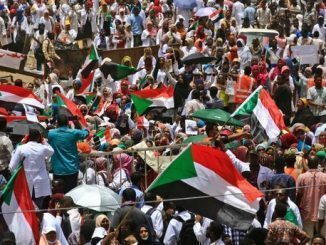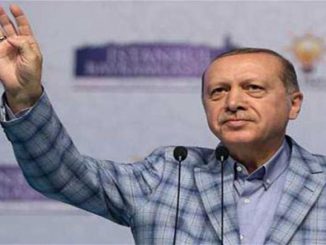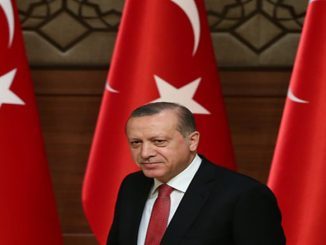Unlike the previous days when they experienced slump in infrastructure and turbulent political situation in the Horn, Ethiopia and Sudan, in recent decades, have decided to boost food and energy production and stimulate manufacturing, while adapting to recurring climatic challenges.
River Nile is shared by 10 countries and because of this shared basin, an initiative was set up to monitor activities along the river.
Ethiopia places utmost consideration to working closely with its neighbouring nations to promote trade, investment, development and infrastructure with a view to hasten economic integration in the region.
The country also strives to promote peace and stability in the sub-region that has been long known for civil tension and conflict. Ethiopia’s strong stance in economic integration and promotion of peace and stability springs from the view that development of Ethiopia is intertwined with the development of its neighbours. Hence, it is in Ethiopia’s best interest to grow together and ensure the peace and security of the region.
For centuries, the Nile has contributed the biggest role in defining the nature of relationships between the two countries along other riparian nations. However, they have never been very active in nurturing the positive aspects of this relationship in the past. Nonetheless, now, the relations between the two nations have witnessed notable turnaround toward cooperation in the utilization of the Nile River. This became more inevitable after Ethiopia mobilized its resources to build the Grand Ethiopian Renaissance Dam (GERD) that has a significant role for Nile Basin countries in general and Ethiopia in particular.
Following the demonstration of Ethiopia’s firm commitment towards GERD and later discussions that help to advance the benefits of Sudan, the Khartoum government pledges its support to the project. In their recent meeting at Addis Ababa, the two heads of states commended the existing cooperation between them on equitable use of the water of the Nile renewing their vows to sustain the win-win approach.
Due to the high demand of hydroelectricity in Sudan, the completion of the GERD project which is located in a less than 40-kms distance from the border of Sudan will encourage Ethiopia’s willingness and commitment to sell power to Sudan.
Accordingly, Sudan, practically demonstrating its support to the GERD project with the general understanding of a fair share of the Nile water, seeks to purchase more power from Ethiopia by the completion of the project. Additionally, the two nations’ agreement on the installment of transmission lines from GERD to Sudan in a bid to increase the amount of electricity purchase is another leap that indicates the nations’ dedication to further strengthen cooperation to ultimately attain economic ties.
Ethiopia is now emerging to be clean power exporter in the region. Recently, it has agreed to sell 400 MW to Tanzania. In addition to the current export to Kenya, Sudan and Djibouti, the nation is also planning to sell the power to Rwanda, South Sudan and Yemen.
Thus, the power integration is translating to other forms of economic, political and cultural cooperation as well. The cross border highway stretching from Addis Ababa to Khartoum is open for traffic and is providing service in accordance with the agreements and immigration rules of the two countries. The service is said to further strengthen bilateral ties in addition to enhancing trade, investment, tourism and social ties between the people in the two nations.
Similarly, in promoting the people-to-people ties between the two nations, apart from the activities undertaken to promote tourism, various activities were undertaken through public diplomacy. These opportunities allowed the people of the two nations to celebrate their shared values in religion, history, culture and languages. Fore instance, the visit of the Ethiopian public diplomacy delegation to Sudan and the Sudanese journalists crew visit to Ethiopia played considerable roles in this regard.
With the travel of Sudanese President Al-Bashir to Addis Ababa for a three-day visit, the dedication of two states towards strengthening closer ties in the political, economic and social fields is vividly portrayed. They have discussed the ways to deepen the historic bond of relations between the two neighbours revising their commitment on the multiple agreements they signed earlier to further boost up cooperation on a range of development activities.
Al-Bashir who is quoted saying “integration with Ethiopia includes all domains especially security, military, political and economic fields” also said that the Nile Basin countries should benefit from the water resources in a fair manner, adding ” We agree on the Ethiopian Renaissance Dam which will supply Sudan and Ethiopia with electricity.” This signifies the pivotal nature of Ethiopia’s rise in the power sector in intensifying East African regional integration.
According to the Ethiopian Prime Minister Hailemariam Desalegn, the two countries have agreed to establish a free economic zone very shortly. He further revealed the plan for a new railway line that connects the two countries. The railway line accelerates the existing strong trade relations the two nations possess. He added, “We work together through a shared vision especially in security, military and economic cooperation,” pointing that “any threat to Sudan is a threat to Ethiopia’s national security”.
Generally, the construction of the GERD opening a new era of cooperation between the two nations and beyond. It is also a model for other nations of the region as well as the continent with regard to pursuing the win-win approach of cooperation to sustain regional integration through economic cooperation.
By Homa Mulisa, Ethiopian Herald



